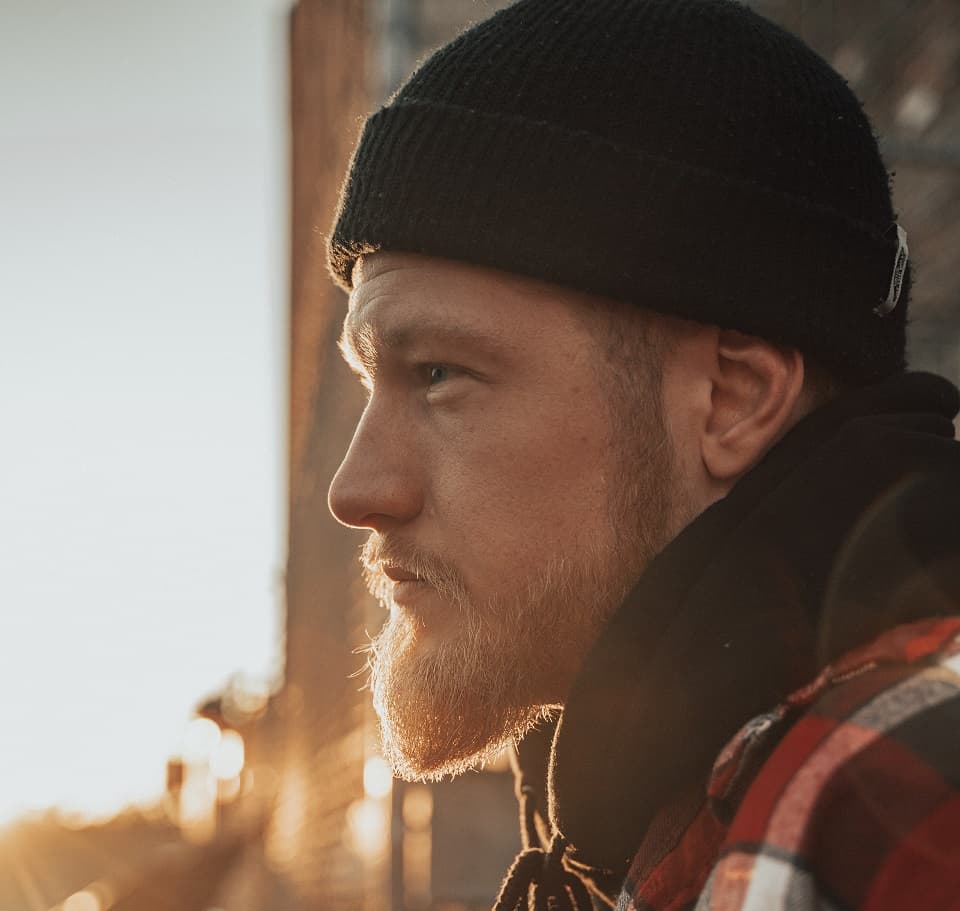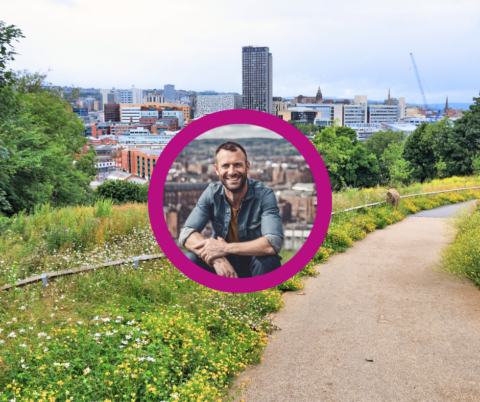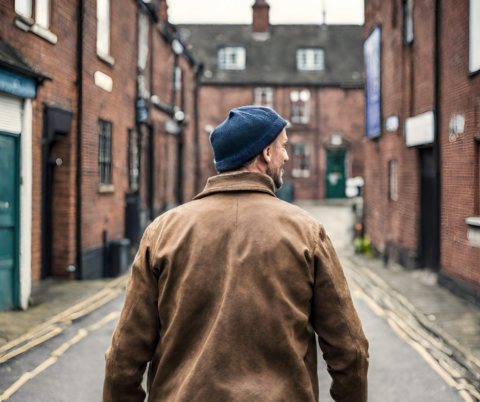Danny came to Nomad while sofa surfing and unemployed. Now he has sustained a tenancy and has a full time job.

Danny was just one of 71,400 hidden homeless people who sofa-surfed in 2019. People are classed as sofa-surfing when they have no other option than to sleep on sofas or floors. It’s a very vulnerable and unpredictable position that people can find themselves in.
How do people end up sofa-surfing?
People can find themselves sofa-surfing for many reasons, such as relationship breakdowns with family, friends or significant others. Issues with finances, benefits and employment can make things worse. This can include:
- Not being able to afford a deposit to rent a flat
- Benefits not covering the real cost of renting
- Losing a job
- Having debt or poor credit
For Danny, like many young people, more than one thing led to him to sofa-surfing. He had fallen out with his family, he didn’t money for a deposit, and barely had enough to cover the cost of a room in a shared house.
How long do people tend to sofa-surf for?
There is not much help available for single homeless people. People can sofa-surf for anything from a night to many years. and often move from place to place. It is not uncommon for people to have to move places many times each year.
Danny had been sofa surfing between two different places over the few weeks before he came to Nomad. He had been staying at a relative’s house and a friend’s house. He had to sleep on the sofa at one place, and the living room floor at the other.
The risks of sofa-surfing
Sofa-surfing often doesn’t cause the same hard-hitting emotional reaction in people as rough sleeping homelessness, but the risks people face while sofa-surfing and the effects it can have on their physical and mental wellbeing are huge.
Due to people having little or no control over what goes on in the environment they are in, it can lead them being exposed to situations that they are not comfortable with.
This lack of control over their environment, combined with the inability to establish their own routine such as choosing when to go to bed, and being able to remove themselves from situations they are not comfortable with can leave people feeling anxious and at risk. Due to their homelessness situation, people are forced either ‘put-up’ with the environment or try and find somewhere else – which isn’t always an option.
People often report the feeling of having to leave the property during the day or being locked out with having nowhere to go and nothing to do. This again can compound the feeling of being unsettled and a feeling of not being in control of your own life.
The ‘knock-on’ effect
Being unsettled, and being in risky and uncomfortable situations impacts on people’s lives in a number of ways:
- Seeing friends and family less
- Poor mental wellbeing
- Poor physical health
- Drug or alcohol issues
- Having to leave employment or not having the ability to apply for work
All these effects combined can make it even harder for a young person to escape homelessness.
What would help prevent sofa-surfing?
When people who had experienced sofa-surfing were asked what would have prevented their homelessness happening in the first place, or helped them transition away from homelessness sooner people said:
- Support accessing housing
- Permanent accommodation in social housing
- Support with mental health
- Support/advice on welfare rights
- Affordable rents
- Temporary accommodation
- Permanent accommodation in the private rented sector
The sooner people can be leave sofa-surfing behind them, along with these risks and negative effects, the sooner they can start to rebuild their lives and develop the skills and resilience needed to avoid homelessness in the future.
Danny identified that he would benefit from access to housing with support, and support to progress towards employment.
What do Nomad offer?
For people in Danny’s situation or similar, people can access Nomad’s Smart Steps programme. Smart Steps aims to house people in suitable and affordable accommodation, with the right level of one-to-one support from a housing officer as is needed. This support includes:
- Settling in and building relationships with housemates, landlords, and neighbours
- Setting up benefits
- Registering at GP surgery, dentist, and other services
- Ongoing support to maintain their tenancy
Alongside this, Nomad coaches are available to support people in a strength-based way to work towards their goals and aspirations. They work in a way which the person is comfortable with, at a pace they feel is right. This support is offered to help people towards:
- Training and education
- Employment
- Volunteering
- A meaningful activity
Danny took the opportunity to access all the support Nomad has to offer. He moved into the training flats to learn the skills necessary to sustain his housing now, and in the future. He also worked with a coach, and together they worked towards Danny gaining full-time employment. He is now working full-time and has his own tenancy.
If you would like to support Nomad in our work, we would be grateful for your support.
If you need support with anything in this blog, or if you need housing, get in touch with Nomad.
Resources: https://www.crisis.org.uk/media/241555/it_was_like_a_nightmare_the_reality_of_sofa_surfing_in_britain_today_2019.pdf




